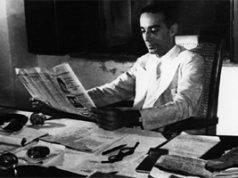Those interested in the wider global progress of the liberty movement will be sick to their stomachs to learn that The Cato Institute, the world’s most productive, influential, and respected, libertarian think tank, is being threatened by a hostile takeover. Charles and David Koch, two prominent libertarian billionaires, responsible for funding much of America’s libertarian political and intellectual movement, have initiated a lawsuit for a controlling influence over Cato.
The basis of the suit, according to the Washington Post’s ‘ThinkTanked’ blog, is that,
“Cato was divided between four shareholders: the two Koch brothers, Cato president Ed Crane, and former Cato chairman William Niskanen….At the heart of the dispute is the fate of the shares owned by Niskanen, who died in October at age 78 of complications from a stroke. The Koch brothers believe that they have the option to buy Niskanen’s shares, while Cato officials believe that the shares belong to Niskanen’s widow, Kathryn Washburn, according to the complaint.”
According to Alison Frankel at Thomson Reuters News & Insights,
“The suit is primarily based on Section 3 of the Cato shareholder agreement, which was signed in 1977 (and is attached to the complaint). The relevant section provides that “[n]o stockholder of the corporation shall have the right or power to pledge, hypothecate, sell, or otherwise dispose of, directly or indirectly, all of any part of his shares of stock without first offering to sell such shares … to the corporation.” That’s pretty clear about how shares are to be handled if a direct owner wants out — but it doesn’t specifically address what happens when a shareholder dies.”
The dispute has raised an interest at the unusual structure of a non-profit to have shareholders.
The Koch takeover attempt has raised fears that Cato’ s reputation as an independent, nonpartisan organization will be permanently damaged.
An excellent overview of the story can be found at Slate.com. The New Yorker provides a useful back-story.
The Background of the Kochs
The Koch brothers (pronounced “coke,” like the beverage) have been responsible for funding a significant portion of libertarian and conservative projects in America. The organizations that receive funding from the Kochs have been collectively dubbed the “Koch-topus ” to imply that Koch funding and influence are spread like tentacles through the liberty movement. Last year, a popular article appeared in the New Yorker illustrating public perceptions of the Kochs (“Covert Operations: The billionaire brothers who are waging a war against Obama”) by Jane Mayer.
Libertarians have defended the Kochs against popular attacks, which are mostly based on anti-rich prejudices and false notions that libertarianism is merely mouthpiece for corporate interests. Cato, a recipient of Koch donations, has had to dodge accusation of being their pawn. This suit, however, demonstrates that Cato has long remained independent of Koch control. But a court ruling in the Kochs’ favour would award them a majority share making Cato another arm of the Koch organizational complex.
The Destruction of Cato’s Reputation
A successful takeover by the Kochs would deliver a fatal blow to Cato’s reputation as an independent research and advocacy organization. Many commentators think that the recent uptick in support for libertarian ideas in American politics has lead the Kochs to want to redirect Cato in order to influence the upcoming elections more directly, and thus to use Cato as a partisan (Republican) organization.
Ed Crane, long-time president of Cato, released a statement to this effect:
“Charles G. Koch has filed a lawsuit as part of an effort to gain control of the Cato Institute, which he co-founded with me in 1977. While Mr. Koch and entities controlled by him have supported the Cato Institute financially since that time, Mr. Koch and his affiliates have exercised no significant influence over the direction or management of the Cato Institute, or the work done here.
“Mr. Koch’s actions in Kansas court yesterday represent an effort by him to transform Cato from an independent, nonpartisan research organization into a political entity that might better support his partisan agenda. We view Mr. Koch’s actions as an attempt at a hostile takeover, and intend to fight it vehemently in order to continue as an independent research organization, advocating for Individual liberty, limited government, free markets and peace.”
Charles Koch claims that “this is not a hostile action” and that he wants to be sure “Cato stays true to its fundamental principles of individual liberty, free markets, and peace into the future, and that it not be subject to the personal preferences of individual officers or directors.” Yet this statement is clearly false on all accounts.
It is a Hostile Take Over
The most striking rebuttal of Charles Koch’s statement are the actions he has taken to change the composition of the board toward those with partisan designs and strong ties to the Kochs. Most of these additions are even hostile to the “fundamental principles” Koch is claiming to support with his actions, supporting attacks on civil liberties, gays, and advocating for aggressive, militaristic interventions overseas.
For example, according to Jerry Taylor, a senior fellow at the Cato Institute, “just before the last shareholders meeting, the Koch brothers also nominated,” among others, John Hinderaker and Tony Woodlief:
- “Hinderaker has written, ‘It must be very strange to be President Bush. A man of extraordinary vision and brilliance approaching to genius, he can’t get anyone to notice. He is like a great painter or musician who is ahead of his time, and who unveils one masterpiece after another to a reception that, when not bored, is hostile.’ Hinderaker supports the Patriot Act and the Iraq War and calls himself a neocon.
- “Tony Woodlief, who has been president of two Koch-created nonprofits and vice president of the Charles Koch Foundation. Woodlief has blogged about ‘the rotten heart of libertarianism,’ calling it ‘a flawed and failed religion posing as a philosophy of governance’ while complaining about libertarians ‘toking up’ at political meetings.
“Now, who’s more likely to “ensure that Cato stays true to its fundamental principles of individual liberty, free markets, and peace into the future” – these Republican operatives and bloggers or the ousted board members who are among the most independent, principled, and energetic libertarians you’ll ever find?”
Anyone familiar with the Cato Institute will understand how fundamentally these position opposed its values.
The Kochs now have significant influence over seven of the 16 board members. (See this diagram.)
Even if the Kochs intentions aligned honestly with Charles Koch’s statement, Jonathan H. Adler at The Volokh Conspiracy hits the nail on the head:
Whatever the merits of the Kochs’ claim, I cannot understand how their actions can, in any way, advance the cause of individual liberty to which they’ve devoted substantial sums and personal efforts over the years. Even assuming their legal claim has merit, a legal victory will permanently injure the Cato Institute’s reputation.
Many libertarian-leaning organizations receive money from the Kochs and their foundations and are attacked on this basis. Such attacks can be deflected, as financial support is not the same thing as control. But if the Koch brothers themselves represent the controlling majority of an organization’s board, that organization is, by definition, a Koch-run enterprise. Progressive activists and journalists will have a field day with this. They will forevermore characterize the Cato Institute as “Koch-controlled” — and, as a legal matter, they will be correct. No efforts to re-establish the Institute’s credibility or independence will overcome this fact.
The Koch brothers may well have legitimate concerns about how the Cato Institute is managed. I don’t know…. Even if one assumes that the Kochs have better ideas for how Cato should direct its resources, know more about how to advance individual liberty, and are correct that the Institute is too “ subject to the personal preferences of individual officers or directors,” any benefit from whatever changes they could make will be outweighed to the permanent damage to Cato’s reputation caused by turning it into a de facto Koch subsidiary. In short, they will have destroyed the Cato Institute to save it.
Moreover, if the Kochs win, many Cato employees will probably quit further reducing its respectability.
The Kochs suit is unwise, short-sighted, and greedy because it will destroy Cato’s long-term influence for the sake of a short-term political agenda. Cato’s influence relies on the respect it has gained from its independent research and advocacy, often criticizing the policies of both Republicans and Democrats. A Koch-controlled Cato will be seen as (and will probably become) a puppet of Koch and Republican interests. Every indicator appears to me to show that a Koch win will kill the goose that lays the golden eggs. What could they possibly have to gain?
Post Disclaimer
The opinions expressed in this essay are those of the authors. They do not purport to reflect the opinions or views of CCS.





